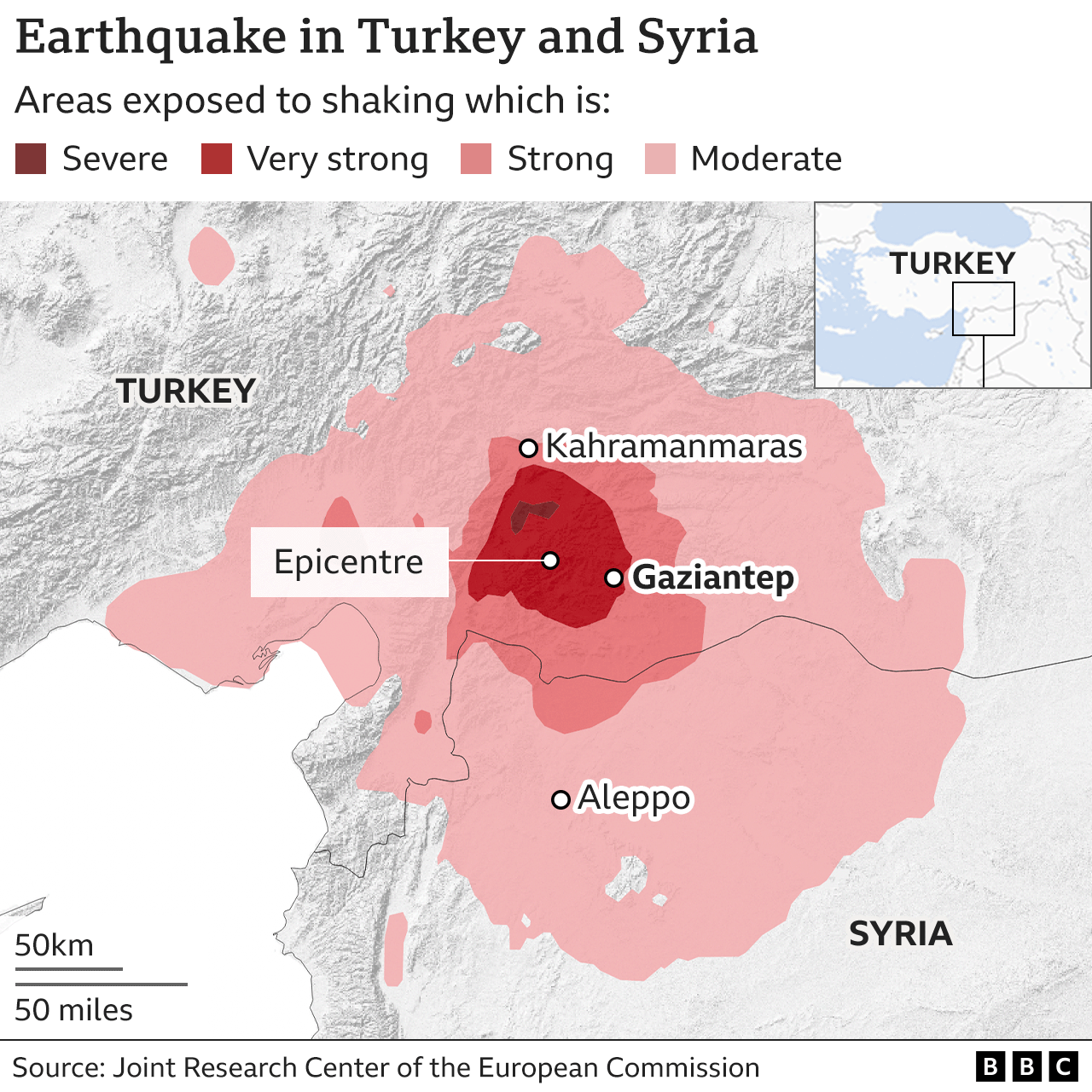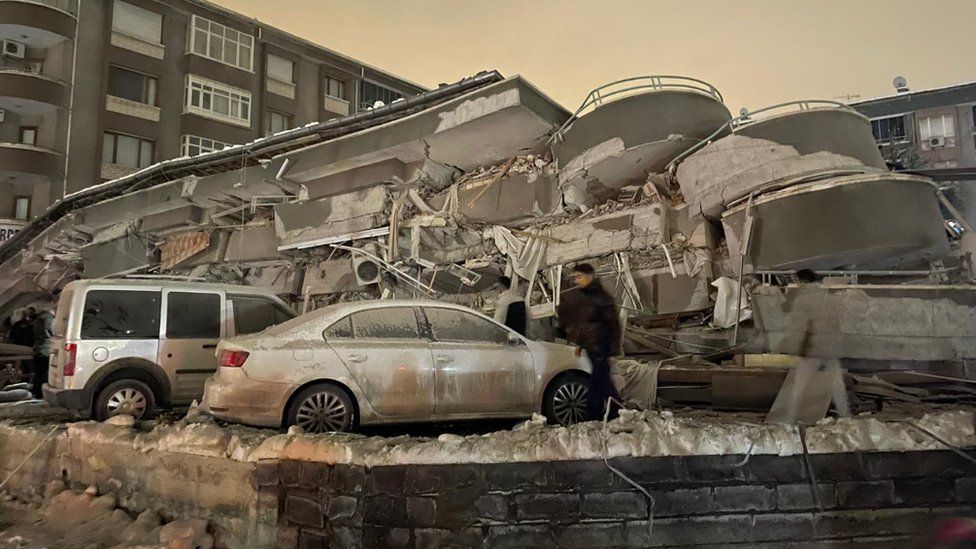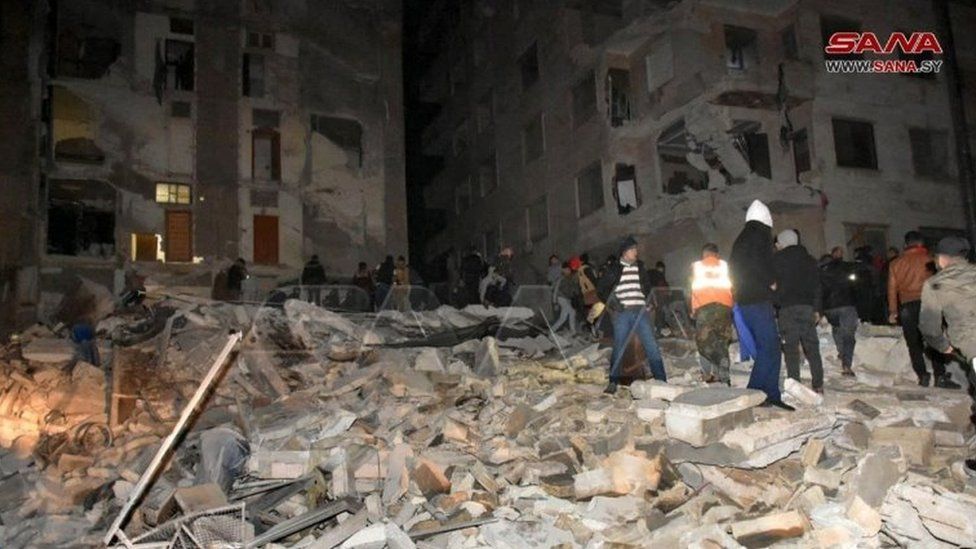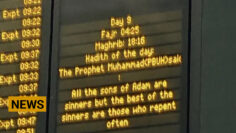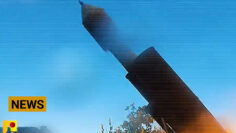
Huge quake toppled buildings in Turkey and Syria as people slept
A powerful earthquake has struck south-eastern Turkey, near the Syrian border, killing more than 1,700 people as they slept and trapping many others.
The US Geological Survey said the 7.8 magnitude tremor struck at 04:17 local time (01:17 GMT) at a depth of 17.9km (11 miles) near the city of Gaziantep.
Hours later, a second quake, which had a magnitude of 7.5, hit the Elbistan district of Kahramanmaras province.
So far, more than 1,000 people have died in Turkey and 780 in Syria.
Seismologists said the first quake was one of the largest ever recorded in Turkey.
Many thousands of people were injured – with at least 5,385 people hurt in Turkey and 2,000 in Syria.
Many of the victims are in war-torn northern Syria, where millions of refugees live in camps on both sides of the Syria-Turkey border. There have been dozens of fatalities reported in rebel-held areas.
Many buildings have collapsed and rescue teams have been deployed to search for survivors under huge piles of rubble in freezing and snowy conditions.
Shocking images show buildings that were four or five storeys high flattened, roads destroyed and mountains of rubble.
Among the buildings destroyed was Gaziantep Castle, a historical landmark that had stood for more than 2,000 years.
And a shopping mall in the city of Diyarbakir collapsed, a BBC Turkish correspondent there reported.
The second quake, which struck at 13:24 local time (10:24 GMT), had its epicentre about 80 miles (128km) north of the original tremor in the Pazarcik district of Kahramanmaras province.
An official from Turkey’s Disaster and Emergency Management Authority said it was “not an aftershock” and was “independent” from the earlier quake.
Hours after the first earthquake, a toddler was pulled from the rubble in Azaz, Syria, dirty and bloodied but alive. Video shows rescuers running to get her out of the cold.
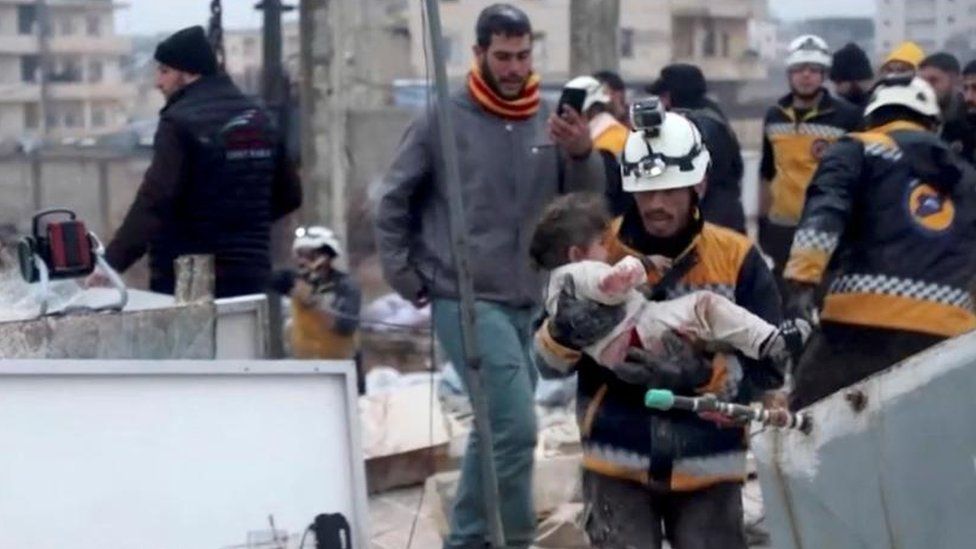
The Turkish Red Crescent has called for citizens to make blood donations, and the organisation’s president, Kerem Kınık, said on Twitter that additional blood and medical products were being sent to the affected region.
Following an international appeal for help, Turkey’s President Recep Tayyip Erdogan said 45 countries had offered support.
The European Union is sending search and rescue teams to Turkey, while rescuers from the Netherlands and Romania are already on their way. The UK has said it will send 76 search and rescue specialists, equipment and rescue dogs to Turkey.
France, Germany, Israel, and the United States have also pledged to help. Russian President Vladimir Putin has offered help to both Turkey and Syria, as has Iran.
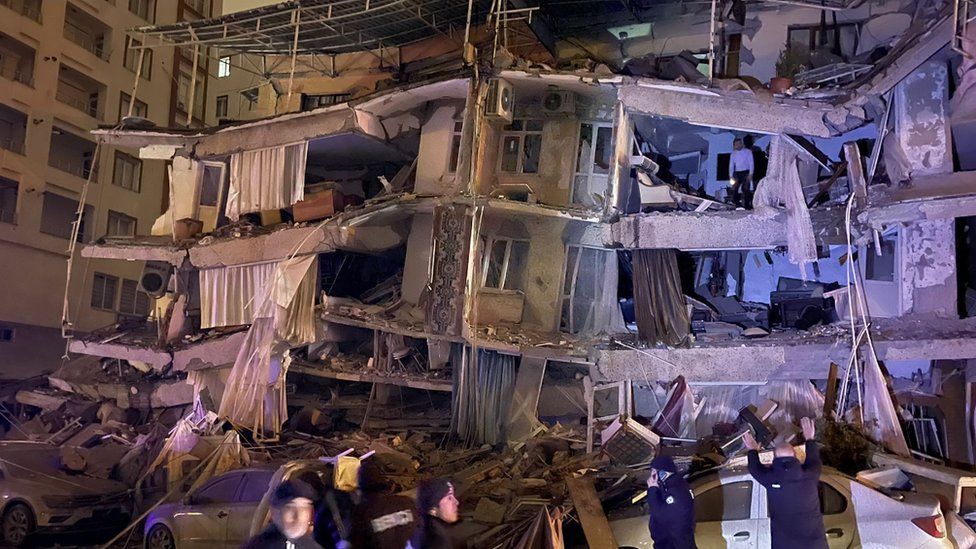
Turkish Interior Minister Suleymon Soylu said 10 cities were affected by the initial quake, including Hatay, Osmaniye, Adiyaman, Malatya, Sanliurfa, Adana, Diyarbakir and Kilis.
School has been suspended in those cities for at least a week.
‘We need help’
In Turkey, President Erdogan said the death toll from the quake was 912 and was expected to rise further.
The Syrian health ministry said 371 people had died in the provinces of Aleppo, Latakia, Hama and Tartus.
A volunteer with the White Helmets rescue group, which operates in rebel-controlled areas of north-western Syria, fought back tears as he described the devastation in Sarmada, near the border with Turkey.
“Many buildings in different cities and villages in north-western Syria collapsed,” he told the BBC.
“Still now, many families are under the rubble. We are trying to save them but it’s a very hard task for us.
“We need help. We need the international community to do something, to help us, to support us. North-western Syria is now a disaster area. We need help from everyone to save our people,” he added.https://emp.bbc.com/emp/SMPj/2.47.2/iframe.htmlMedia caption,
Watch: Searching for people in earthquake rubble in Malatya
The earthquake was powerful enough to be felt as far away as Cyprus, Lebanon and Israel.
“I was writing something and just all of a sudden the entire building started shaking and yes I didn’t really know what to feel,” Mohamad El Chamaa, a student in the Lebanese capital, Beirut, told the BBC.
“I was right next to the window so I was just scared that they might shatter. It went on for four-five minutes and it was pretty horrific. It was mind-blowing,” he said.
Rushdi Abualouf, a BBC producer in the Gaza Strip, said there was about 45 seconds of shaking in the house he was staying in.
Turkey lies in one of the world’s most active earthquake zones.
In 1999, more than 17,000 people were killed after a powerful tremor rocked the north-west of the country.
